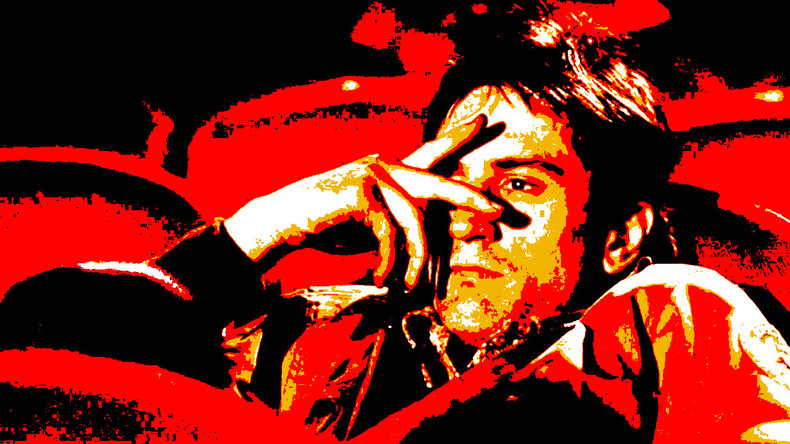Taxi Driver

‘Taxi Driver’ is something else. One for talking about. Eugene S. Robinson has penned a short but fair little ad for it in OZY.
What might I add? Urban portrayed in the light of now? Capturing - as it does a bit - the last days, in what might be, the most evocative of modern of cities. All before everything changed in the mid-80’s. NY, overnight - 1985 - gentrified. Post-Aids and post-free and easy. Heritage of the last twenty years and longer - gone. Freedoms of economics for as many as would turn up.
Continual progression isn’t always the case, some things never return. In NY NY? Virtually everything. For the record, galleries came to the east village, two or three hundred in a year. NY was ‘cleaned up.’
Manhattan during those end-of-70’s was a cultural promised land. A mix of ordinary people and punks. And Puerto Ricans. A handful of outsiders from every US town. Gay, jazz, street peep. Vets. Everyone important, just because - they where ‘there’. No posh or pictures in trendy mags. Not downtown. Like Travis, someone could turn up, bang on a door and get a job. Cheap rents on the edge of “best no-go” areas like Alphabet City. An unspoilt ghetto with no-fuss from outside. Jersey kids drove in on the weekends but it wasn’t hip. It was pre-hip. Underground everything.
Nostalgia is a waste of time. What does Taxi Driver tell us today? The grim and trouble he felt is so utterly not, compared to today. Sure, murder rates were through the roof, but the cops were... let’s say, not ‘on it’. Frank Serpico (NYPD), speaking of the 60’s through to those days, tells of ‘everyone - 100% everyone - was ‘on the make’. As the film portrays, it was that dangerous in parts but people knew to be careful and generally were. But the cops and authorities were remote. Society less shaped but left to get along.
Our heart and soul is much more the challenge today. More threatening than the streets. That Travis cared, crazy as, is a parabolic mix of urban alienation on meaning and purpose and what can we do? We need this heart, not mixed-up, misconstrued as violence but in aggressive info-warring to expose. Which if done right - is love.
We cannot remake the old (worlds) but we can watch a film like this and find hope for a better tomorrow. Find urgency of our cause. The ‘sometimes, a man or a woman, has got to...’
For Scorsese it was Manhattan’s unique imposing atmosphere. A romance. Screenwriter Paul Schrader, angry and pissed-up was living in a car when he wrote it. Diaries of the person (Bremer), who shot a presidential candidate (Wallice), gave him a channel to hit out. He wrote out his pain in a story. (Talk about art therapy). A character with post-war madness wanting to destroy the life he couldn’t find now home.
We can’t have, so we find a fight. Which one?
Fuller spectrum dominator wants us on the wrong ones. They want us to hate some group of people, anything but them. They mostly want us to hate ourselves.
This film is about the very right and the deadly wrong. Love/hate. Rescue/destroy. Right fervour/wrong target. And about how this world can screw our heads up.
We should try and make it instructive viewing. And no no need to be mad at the wrong thing, when plenty deserves our productive fight.
